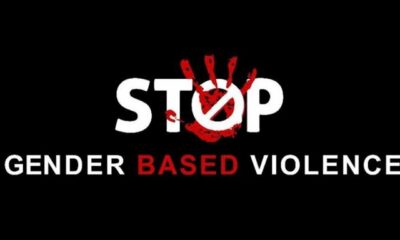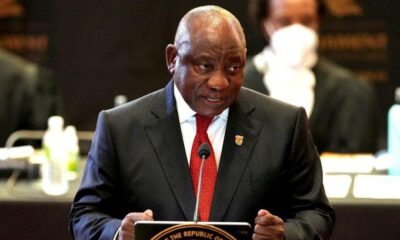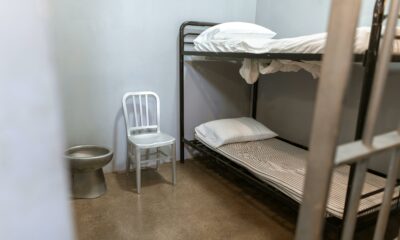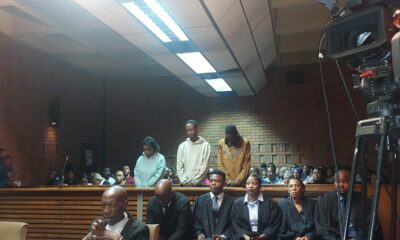News
SA’s Breaking Point: NUMSA Joins National Shutdown as GBV Crisis Sparks Nationwide Fury

A Nation Fed Up: Why NUMSA Is Taking to the Streets
South Africans have marched before. They’ve demanded answers before.
But this time, the anger feels heavier and the calls for accountability are echoing across the country with an intensity that can’t be ignored.
South Africa’s largest metalworkers union, NUMSA, has announced it will join Friday’s National Shutdown, a mass action rooted in deep frustration over the country’s relentless wave of gender-based violence (GBV), femicide, and attacks on children.
The union’s National Gender Structure will lead a march in Bloemfontein on 21 November, with members from the Northern Cape and Free State joining forces. Other SAFTU affiliates, including TASWU and NUPSAW are also expected to take part.
A Crisis That Feels Like War on Women and Children
NUMSA leaders say the situation has reached a point where silence is no longer an option.
They’re not exaggerating.
According to crime data analysed by AfricaCheck, more than 5,700 people were murdered between January and March this year, including 837 women.
That means nine women are killed every single day in South Africa.
And those figures don’t even capture the sheer horror of recent childhood trauma cases that have shaken communities to their core.
Two tragedies that broke the nation:
-
In September, seven boys at a Soweto primary school were allegedly drugged and raped at gunpoint.
-
Just weeks later, a seven-year-old girl in Atlantis was reportedly raped on school grounds.
Both incidents sent parents into panic, reigniting questions about school safety and whether the state is truly capable of protecting its most vulnerable citizens.
NUMSA’s 2nd Deputy President, Puleng Phaka, didn’t mince her words:
“Communities are terrified. Families are shattered. We cannot continue as if this is normal.”
Public Rage Is Boiling Over
South Africans on social media have responded with raw emotion:
-
“How many more children must die before the government acts?”
-
“Not one woman or child is safe in this country. We’re begging for protection.”
-
“GBV is not a crisis it’s a pandemic.”
Civil society group Women for Change, one of SA’s most active voices on GBV issues, is credited with sparking the call for nationwide demonstrations. The organisation urged the public to demand that GBV be placed at the top of the national agenda not treated as a yearly talking point.
South Africans don’t want another speech. They want action.
A Protest With Symbolic Power
The Bloemfontein march will start at Hoffman Square at 11:00 on Thursday, 21 November. NUMSA has encouraged members across the country to join local demonstrations if they cannot make it to the Free State.
What makes this moment unique is the scale of solidarity.
It’s not just activists, NGOs or survivors speaking out it’s major unions, labour structures, and workers from every sector.
In South Africa’s protest culture, when the unions move, the country pays attention.
Why This Movement Feels Different
GBV protests are not new. South Africans marched in 2019 after the murders of Uyinene Mrwetyana and Jesse Hess. We marched again in 2021 after the killing of Nosicelo Mtebeni. Each time, the country demanded change. Each time, government leaders promised action.
But the systems meant to protect women and children remain painfully slow.
What’s different now is that labour power is entering the fight and that has the potential to change the political temperature.
Unions bring numbers, strategy, national networks, and a long history of using protest to force government accountability.
In a country built on mass action, this matters.
The Bigger Story: GBV Is Not a Side Issue, It’s a National Emergency
South Africa’s GBV crisis has become so deeply entrenched that it cuts across politics, class, provinces, and institutions.
Hospitals
Schools
Homes
Workplaces
Public transport
Violence follows women and children everywhere they go.
NUMSA’s participation in the shutdown adds weight to the growing argument that gender-based violence should be treated with the same urgency as any other national disaster.
This isn’t only a women’s issue, it’s a full-blown threat to the country’s social fabric.
The Country Is Speaking. Will the Government Listen?
Whether the National Shutdown shifts government action or not, one thing is clear:
South Africans are no longer willing to accept GBV as an unavoidable part of life.
NUMSA’s march in Bloemfontein is more than a protest, it’s a warning shot.
A sign that workers, parents, unions, survivors, and communities are stepping up where the state has stumbled.
On 21 November, the message will be loud:
Enough is enough. South Africa cannot live like this.
{Source: IOL}
Follow Joburg ETC on Facebook, Twitter , TikTok and Instagram
For more News in Johannesburg, visit joburgetc.com


























